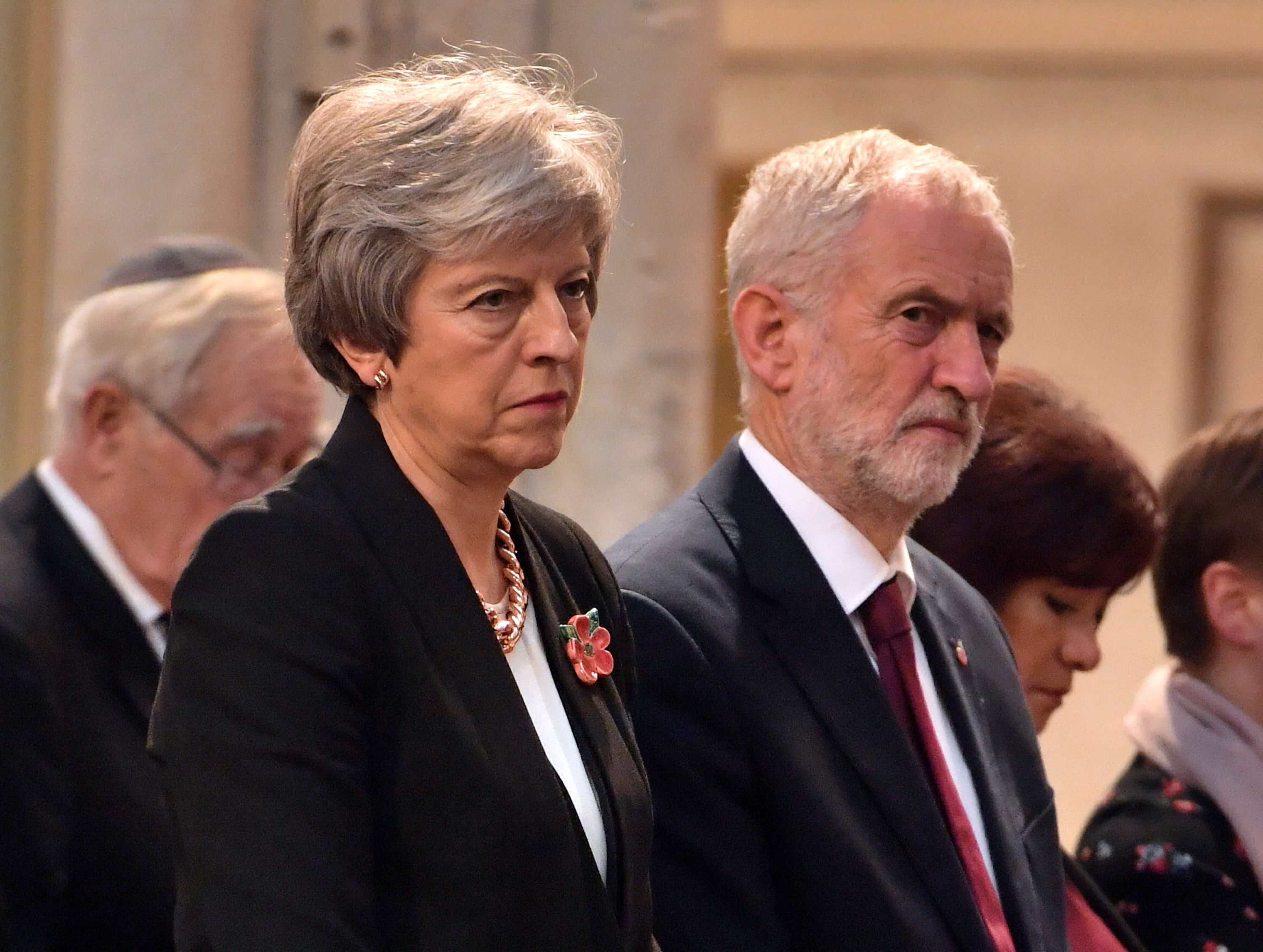In normal times, news that a prime minister and opposition leader were discussing their differences in a bid to reach compromise would stir hope for progress, and so it may be with Brexit. But the times are nowhere near normal in today's UK, and the extra few months that European leaders gave British politicians this week to sort out their Brexit plan will put extraordinary stress on both of the UK's largest parties—with uncertain consequences.
That's because both parties are divided internally in the Brexit fight with neither unified around a clear path forward. Consider the following:
The Conservative Party's problem: There are deep divisions of opinion within Prime Minister Theresa May's party on what sort of Brexit is best for Britain. Though she has pledged to treat the vote for Brexit as an expression of the people's will, those within her party who support "Brexit by any means necessary" suspect that she's less than fully committed to the cause, particularly because she voted in the referendum to keep the UK within the EU.
May needs Labour votes to pass a Brexit plan, but the hardline skeptics in her party will use any concessions she offers the opposition as proof she has betrayed her party and denied Britons the Brexit they want. In fact, more than 100 Tories preparing to run in local elections next month signed a public warning this week that voters see her willingness to compromise toward a softer Brexit as a "breach of faith."
The Labour Party's problem: Leader of the opposition, Jeremy Corbyn, opposed Britain's entry into the EU decades ago and has never argued forcefully that the UK should remain. As with May, this creates mistrust within his party's rank and file, the vast majority of whom supported the remain side in the referendum.
Despite anti-Brexit sentiment within his party, Corbyn knows that about 60 percent of seats his MPs won in the last elections represent constituencies where a majority voted for Brexit. He also knows that to win a majority at the next elections, they must secure even more votes from people who want the UK out of the EU.
Now that May is forced to negotiate with them, the Labour Party's divisions are becoming more important. Earlier this month, 25 Labour MPs signed a public letter opposing a second referendum. But days later, 83 Labour MPs signed a public letter of their own demanding that any deal Corbyn might strike with the government must be ratified by a "confirmatory public vote"—in essence, a second referendum. The authors added that, "It is not Labour's job to rescue Theresa May and usher in her successor."
The bottom line: May's insistence on sticking with her own Brexit plan for so long saved both parties from making truly hard choices, but talk of compromise now pushes us into a new phase of the Brexit crisis. May and Corbyn each face threats of mutiny from within their parties, but changes in leadership alone won't eliminate deep intra-party divisions on the larger Brexit questions.
In short, a few more months of anguish and anger over Brexit might well drive a wedge right down the middle of both of Britain's largest political parties. The implications of that problem, for the UK and its politics, might prove even more consequential—and difficult to predict—than the impact of Brexit itself.
